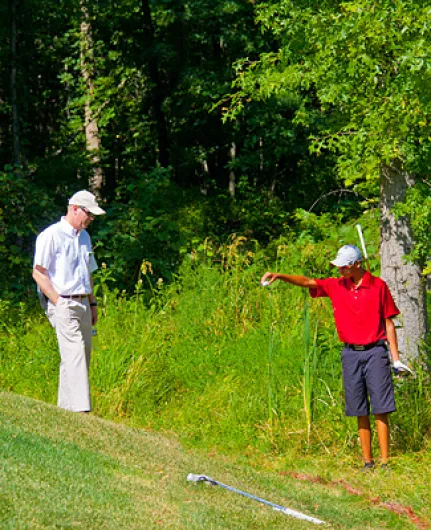New Twists On The Rules

By Rick Jenkins
Every four years, the USGA and the R&A, the two bodies that govern the game of golf around the world, make revisions to the Rules of Golf. For 2012, the set of changes is more significant than usual and corrects some issues considered for a long time to need attention. The key changes attempt to better align breaches of certain Rules with their penalties. As Glen Nager, the new President of the USGA who chaired the Rules Committee that worked on the changes, says, “While it is considered important that the Rules be faithful to their historical principles, they must be clear, comprehensive and relevant to today’s game, and the penalties must be appropriate.” The changes become effective on January 1, 2012 and are part of the overall Rules of Golf that will be in effect until the next revision at the beginning of 2016.
Here is a summary of the key changes.
Rule 6-3a – Time of Starting. The Rules will be more forgiving to players who arrive late, but within five minutes, of their starting time. Currently, if a player arrives late he is disqualified unless the Committee has added a condition of competition that allows for a five minute grace period, which would reduce the DQ to a two-stroke penalty in stroke play or loss of hole in match play. The 2012 revision modifies the Rule to match the current condition of competition. Going forward, only players who arrive more than five minutes after their starting time will be disqualified. This is an important modification for tournament players, although less so for NJSGA tournament players because we always allowed the five-minute grace period as a condition of competition.
Rule 12-1 – Searching for Ball; Seeing Ball. Rule 12-1, which deals with searching for your ball, has been modified to simplify the Rules and create uniform application throughout the course. Currently, when your ball is in a hazard and believed to be covered by loose impediments, there is no penalty if your ball is accidentally moved while searching. However, if this same situation occurs outside of a hazard, you are penalized one stroke and must replace the ball.
Starting in 2012, if you move your ball during a search anywhere on the course when it is believed to be covered by loose impediments, you will incur a penalty stroke and must replace the ball.
Rule 13-4 – Ball in Hazard; Prohibited Actions. It is no longer a prohibited action for a player to smooth sand or soil in a hazard before playing a shot from that hazard – as long as the act is for the sole purpose of caring for the course and not improving one’s lie, the area of his intended stance or swing, or his line of play. For example, if a player enters a bunker to retrieve a rake, he may rake over his footprints before he plays his shot from the bunker as long as he is not gaining an advantage from doing so.
Rule 18-2b – Ball Moving After Address. This Rule now exonerates the player from penalty if his ball moves after it has been addressed, as long as it is known or virtually certain that he did not cause the ball to move. For example, if a gust of wind moves the ball after a player has addressed it on a putting green, there is no longer a one-stroke penalty and the ball does not have to be replaced; rather, it is played from its new position. This Rule has long troubled players and received much notoriety over the years, including the Padraig Harrington incident at the 2008 Masters and Webb Simpson this year when he lost the Zurich Classic after his ball inadvertently moved on the 15th green. This Rule may have cost Simpson the PGA TOUR money title this year, and finally received the modification it deserved.
Players still need to be careful about grounding their clubs in the rough. If you ground your club to address the ball, and the pressure on the grass causes the ball to move, that movement is considered to be caused by the player, and the one-stroke penalty still applies.
The recent changes also tweaked language in several other Rules, but mostly for clarification and application purposes. The changes summarized above are the most significant and will be the most impactful to players.
